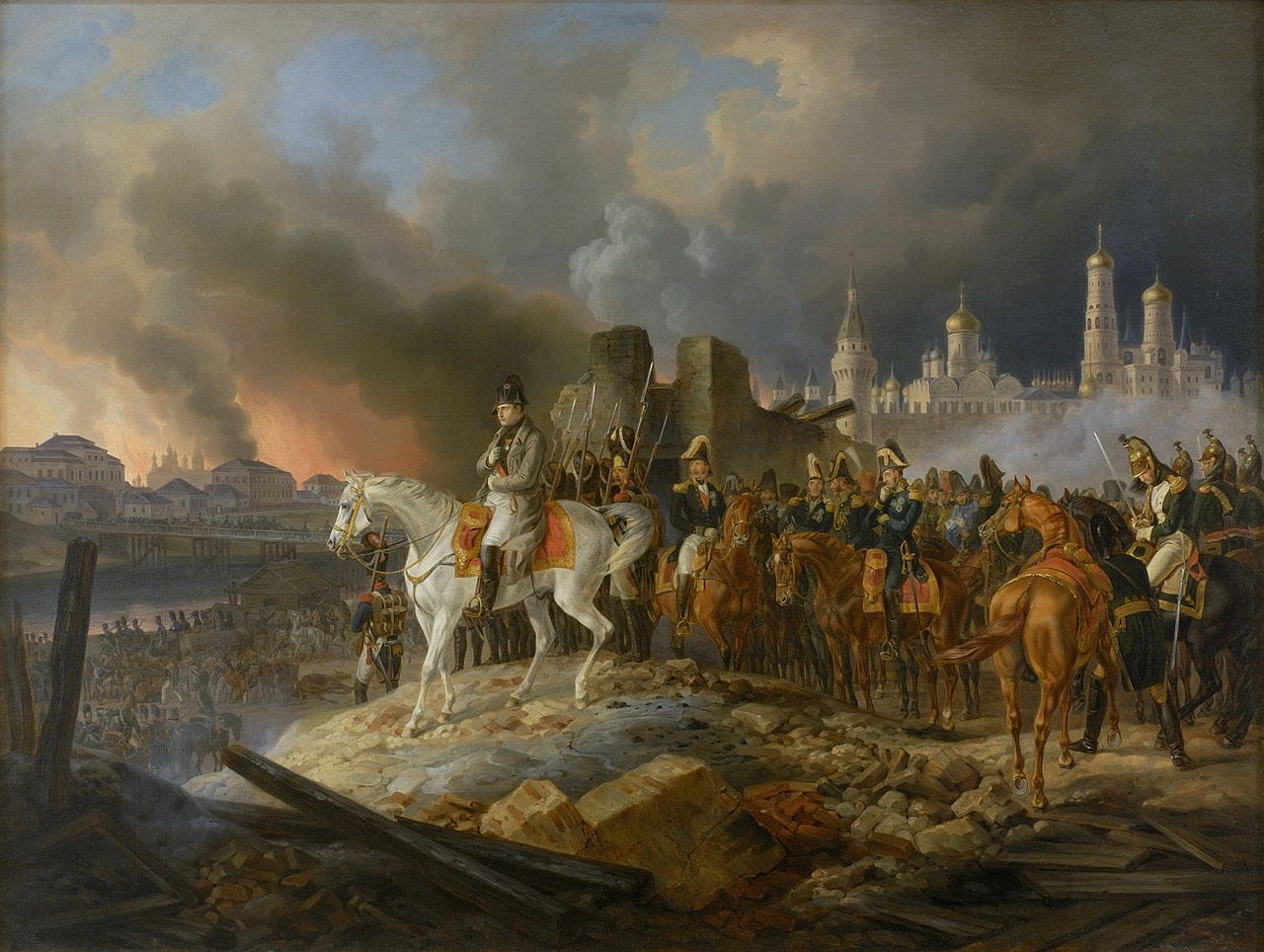It's not all about security
One bad line shows Mearsheimer's folly

Both left and right illiberals have long glommed on to the idea of ‘national sovereignty’ as an incantation to protect against any human rights criticism of their favored regimes. This means that the Russian invasion of Ukraine has presented them with a bit of a problem, being as it is a massive and undeniable violation of Ukrainian sovereignty and territorial integrity. In seeking to explain this action, the most common route taken by Russia’s apologists has been to argue that Ukraine represents a unique threat to Russian security. The undisputed master of these mental gymnastics is John Mearsheimer. This is not surprising, as the Realist school of international relations, over which he has been particularly influential, emphasizes the security of states above all else, as the primary explainer for state behavior. The core of his argument is summed up in an article he wrote for Foreign Affairs in 2014:
The West was moving into Russia’s backyard and threatening its core strategic interests. A huge expanse of flat land that Napoleonic France, Imperial Germany, and Nazi Germany have all crossed to strike at Russia itself, Ukraine serves as an enormously important strategic buffer to Russia itself.
This quip has been enormously influential - across the political spectrum. The exact quote or the whole article have been used both by the alt left outlet Counterpunch and the right wing ‘Thinking Conservative’ blog and everywhere in between. Readers familiar with the history of Eastern Europe, however, have probably surmised where I’m going next.
Napoleon didn’t invade Russia through Ukraine. At its height, Napoleon’s realm never included Ukraine. Napoleon invaded through Poland, Lithuania, and Belarus. This is famously the case. The advance and retreat are subject of one of the most famous infographics in history! Napoleon even quipped about a particular church in Vilnius - very far from Kyiv indeed.
Similarly, in World War I, while Austro-Hungary began the war with a portion of what is now Ukraine in their territory (from the Polish partitions), there was no substantial central power advance through Ukraine into Russia - the biggest danger to Russian cities again lay to the north - while Kyiv was captured in the waning days of the war, the German Empire didn’t advance through Kyiv into Russia, but rather threatened Petrograd from Estonia:
Only after the treaty of Brest-Litovsk was the rest of Ukraine occupied by the Central Powers and local Ukrainian forces, as Lenin focused on militarily and then diplomatically securing this more dangerous northern route into Russia proper.
And again, under the Third Reich, Germany invaded along this route and others:
Here we can say that Germany went through Ukraine to get to Russia (the next year arriving to Stalingrad), but yet again the assaults most dangerous for Russia proper came through Poland and Lithuania.
Why is this factual error so important? Because it is the crux of Mearsheimer’s argument. If the concern is over flat expanses of land through which Russia has been invaded, the Russian government should really be equally worried about Lithuania
Russia hasn’t been attacking Lithuania, Latvia, and Estonia for the last decade though, at least not openly. And this presents something of a problem for Mearsheimer. If the argument is that Russia had to invade Ukraine in 2014 because Ukraine is some enormous liability, why have the Baltics, which edge right up to Russia’s second city, gotten off mostly free?
To answer this, Mearsheimer he has to pretend that Ukraine is the gateway to Russia itself, that therefore Russia cannot abide an unfriendly power on its doorstep any more than the US could abide an unfriendly Mexico (though one wonders what he thinks of Cuba). The claim requires stretching and even ignoring history. What’s the alternative explanation the Mearsheimer doesn’t want to engage with?
Well, there are two. One is based on culture, and the other on mutual security. Culturally, Russia and Ukraine have deep historical ties. Russia’s dominance of Ukraine lasted for centuries, and the two drew much from their common origin in Kyivan Rus. So, to build any kind of ‘civilizational’ Slavic sphere, the kind imagined by Aleksandr Dugin, requires incorporating Ukraine. This is probably a motivator for at least some Russians, though it’s unclear how many hold to Dugin’s desires in that regard.

The other reason is simpler - the Baltic states were part of NATO. And so, as with Poland and Hungary and Romania - and *unlike Ukraine, Moldova, and Georgia - they have benefitted from that collective security. But acknowledging that means accepting that NATO has secured peace where it has existed and that war has only broken out where NATO expansion was delayed, and this vision - of Russia somewhat opportunistically snapping up territories from non-NATO members while leaving NATO ones alone - is of course incompatible with Mearsheimer’s general thesis.
The reality, which ‘Realism’ is curiously unable to grasp, is that that silly liberal conception of national sovereignty is actually a pretty decent guide for interstate institutions, outside of extreme cases. As Benito Juarez put it after having successfully defended his own state, “Between individuals, as between nations, peace means respect for the rights of others". A league of states managing to work together for mutual defense quite obviously is an impediment to war, while an imagined right to a ‘sphere of influence’ that applies to some states but not others is an encouragement of it.
Faced with this historical evidence, he makes things up. Is the exact route of Napoleon’s invasion of Russia important? No. But pretending that Ukraine is some unique highway into Russia while other (NATO) countries have just as often been the chosen route of invaders is telling.



![[Map] Map of Operation Barbarossa, 22 Jun to 25 Aug 1941 | World War II Database [Map] Map of Operation Barbarossa, 22 Jun to 25 Aug 1941 | World War II Database](https://substackcdn.com/image/fetch/$s_!2NsV!,w_1456,c_limit,f_auto,q_auto:good,fl_progressive:steep/https%3A%2F%2Fsubstack-post-media.s3.amazonaws.com%2Fpublic%2Fimages%2Feb1ea575-b12b-417e-a8cd-5df1965f1b11_474x360.jpeg)

